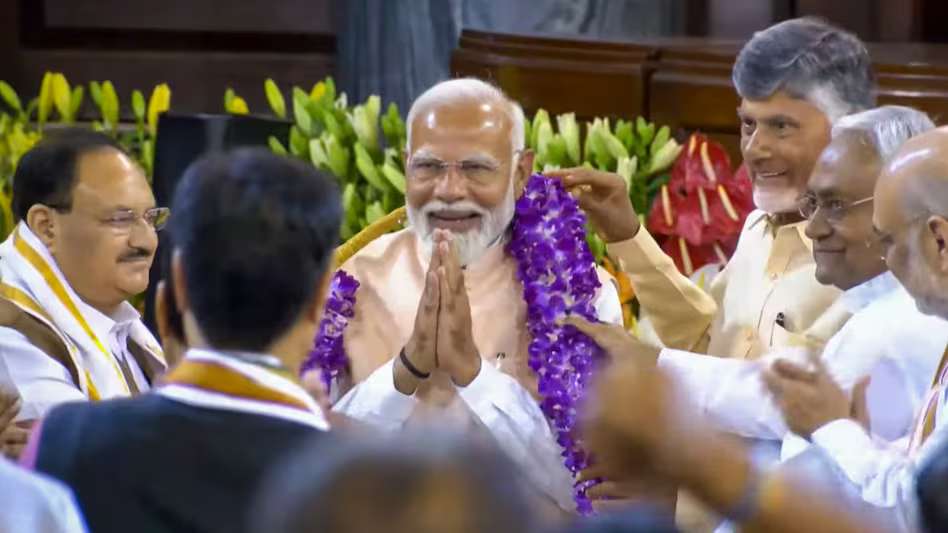With the recent political shifts and the BJP’s reduced majority in the Lok Sabha, the next Union Budget 2024-25 is poised to reflect new priorities influenced by coalition dynamics. The Reserve Bank of India (RBI), under Governor Shaktikanta Das, has outlined several economic assessments that provide essential cues for the incoming Finance Minister.
One significant aspect is the higher nominal GDP projection. The Interim Budget set the nominal GDP growth at 10.5%, a figure supported by optimistic economic indicators. The RBI has revised its real GDP growth projection to 7.2% for 2024-25, up by 20 basis points. Last year’s real GDP growth of 8.2%, as estimated by the National Statistical Office (NSO), sets a strong base for the current fiscal year. This positive outlook justifies a higher nominal GDP target, which will enhance fiscal deficit and tax collection metrics.
Addressing persistent food inflation is another critical challenge. Food inflation remains high, with rates standing at 7.9% in April 2024 and averaging 7.0% throughout 2023-24. The RBI’s Monetary Policy Committee (MPC) has emphasized the need for vigilant measures to prevent inflation from derailing economic stability. While monetary policy has its limits in addressing food inflation, the Union Budget can introduce fiscal measures to mitigate supply bottlenecks and stabilize food prices.
Boosting private consumption, a key driver of aggregate demand, is essential for economic recovery. Private consumption shows signs of recovery, particularly in urban areas, with increased retail sales of passenger vehicles (7.7% rise), domestic air passenger traffic (4.6% rise), and two-wheeler sales (16.3% rise) in April-May 2024. However, rural and semi-urban regions still require significant support. The budget can address this by allocating more resources to stimulate economic activity in these areas, acknowledging the rural distress and unemployment issues highlighted by recent electoral outcomes.
Sustaining government capital expenditure is crucial for driving post-pandemic economic growth, compensating for suboptimal private investment in some sectors. The RBI notes that capacity utilization in manufacturing reached 76.5% in Q4 2023-24, above the long-term average of 73.8%. To maintain growth momentum, the new budget should strike a balance between continued government capex and boosting rural consumption, avoiding cuts that could hamper short to medium-term growth.
In addition to these points, enhancing fiscal prudence and stability will be vital. The upcoming Union Budget will need to focus on maintaining fiscal prudence while addressing the coalition’s diverse demands. Ensuring fiscal stability through judicious allocation of resources and targeting sectors that promise high returns on investment will be essential. The Finance Minister will need to navigate these economic cues while aligning with the coalition partners’ expectations.
As the NDA government prepares to present the Union Budget 2024-25, these insights from the RBI offer a roadmap for balancing economic growth with fiscal responsibility. By addressing food inflation, boosting private consumption, continuing capital expenditure, and ensuring fiscal prudence, the budget can lay the groundwork for sustained economic stability and growth in the face of new political dynamics.

